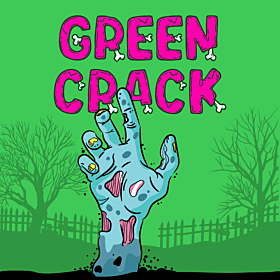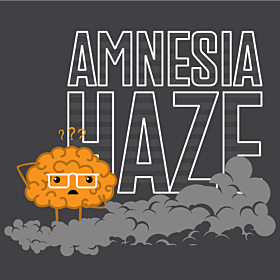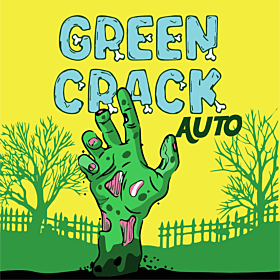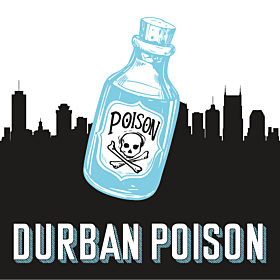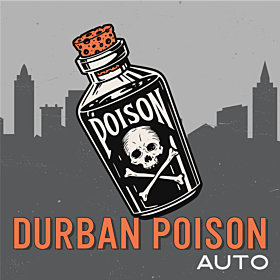Delaware
Cannabis seeds for sale in Delaware
Bottom Line:
The U.S. state of Delaware has legalized the use of medical cannabis exclusively for patients with a qualifying condition. However, recreational cannabis remains illegal at all levels, though was recently decriminalized for possession of small quantities.
Despite having legalized medical cannabis almost a decade ago, Delaware appears no closer to giving the green-light to recreational marijuana. However, the decriminalization of small quantities of cannabis heralded a turning point for the state’s prior pot policy, which was relatively severe. Qualifying for a medical cannabis card is the only way to legally access cannabis in Delaware right now.
When Was Medical Cannabis Legalized in Delaware?

The legalization of medical marijuana in Delaware took place in May 2011, when Governor Jack Markell authorized the use of medical cannabis by patients with "certain serious or debilitating conditions". At the time, it was specified that patients must be diagnosed by an authorized physician with one of several chronic conditions including "cancer; Alzheimer's disease; post-traumatic stress disorder; and conditions that cause intractable nausea, severe pain or seizures, among other illnesses."
According to the Delaware Division of Public Health, the vast majority of medical cannabis patients in the state are under treatment for chronic pain (36%), followed by muscle spasm sufferers (22%) and cancer patients (9%).
What About Decriminalization in Delaware?

Recreational cannabis remains illegal state-wide, though Governor Markell signed new legislation to decriminalize possession of small quantities of cannabis in 2015. Today, the standard penalty payable for carrying small amounts of marijuana is a $100 on the spot citation.
More specifically, the new legislation states that it is still illegal for anyone under the age of 21 to carry any quantity of cannabis whatsoever. In addition, anyone caught consuming cannabis "in a moving vehicle, in public areas, or outdoors on private property within 10 feet of a street, sidewalk or other areas accessible to the public" will be found to have committed a misdemeanor. Penalties remain relatively severe for individuals deemed to be in possession of cannabis with the intent to supply.
Where Is It Safe to Purchase Cannabis in Delaware?
Medical cannabis in Delaware is currently only available from the state’s OMM-registered compassion centers. Cannabis can be sold exclusively to medical cannabis patients and registered caregivers, who must present their cannabis permit and formal identification at the point of purchase.
The vast majority of medical cannabis patients are restricted to the purchase of 3oz of cannabis every 14 days. There may be exceptions where doctors recommend larger quantities of cannabis, though this is relatively rare.
Where Is It Safe to Consume Cannabis in Delaware?

As a general rule of thumb, medical cannabis in Delaware should not be consumed anywhere that may be considered a public place. Discretion is always advised, even when consuming cannabis on private property. The consumption of cannabis in a motor vehicle of any kind or where it is forbidden to smoke tobacco is also prohibited.
Delaware continues to strongly enforce anti-DUI policy for cannabis users, forbidding the operation of any kind of machinery while under the influence of cannabis. Medical cannabis patients are therefore strongly advised to carefully consider their day-to-day activities while under treatment.
What Are the Cannabis Possession Limits in Delaware?
Again, there is no allowance whatsoever for non-medical cannabis users to carry any quantities of cannabis whatsoever. For qualifying patients and caregivers, the maximum quantity of marijuana that can be carried is 6oz – or 170g. It is possible for a registered caregiver to have a maximum of five patients under their care at any one time, for whom they are permitted to purchase and carry their full quotas of cannabis.
Despite the fact that non-authorized cannabis use has been decriminalized in Delaware, anyone caught in possession risks a civil penalty and confiscation of their marijuana. The civil penalty is, however, not recorded as a formal offense.
How Does the Delaware Medical Marijuana Registry Work?
The OMM is the authority that provides formal permission for qualifying patients to access medical cannabis in Delaware. In the event that a patient is younger than 18 years of age, a parent or legal guardian must sign on their behalf. Various conditions must be met to qualify for medical cannabis in Delaware, while a $125 fee is payable annually for qualifying patients.
What Are the Qualifying Conditions for Medical Cannabis?
Delaware follows the same basic framework as most other US states with its list of qualifying conditions. Patients may be considered suitable for a medical cannabis permit upon being diagnosed with one or more of the following:
- Terminal illness
- Alzheimer’s disease
- Lou Gehrig’s disease
- Cancer
- Chronic debilitating migraines
- Decompensated cirrhosis (Hepatitis C)
- Glaucoma
- HIV/AIDS
- Intractable epilepsy
- Post-traumatic stress disorder (PTSD)
- Seizure disorder
- Cachexia, or wasting syndrome
- Intractable nausea
- Multiple sclerosis
- Severe, debilitating pain
- Severe muscle spasms
It is also possible to file a petition with the Delaware Health and Social Services (DHSS), in the event that a patient’s condition doesn’t currently appear on the list. Legal support may be required to assist the process.
Can I Apply for a Medical Cannabis Card in Delaware?
Eligibility for a medical cannabis card is assessed primarily on the patient’s state of health and whether they have a qualifying medical condition. The application process looks a little like this:
- The patient is diagnosed with a qualifying medical condition by an authorized physician, who then provides the patient with a confirmatory certificate.
- An application is submitted online or by email, either by the patient or their registered caregiver.
- At the time of application, the patient or caregiver must pay a non-refundable fee of $125. This is the same renewal fee that must be paid annually by all patients and/or caregivers.
- Formal identification must be provided to support the application, along with proof of residency within the state of Delaware.
- A decision is returned, after which the patient may legally purchase medical cannabis, or lodge an appeal with the Delaware Health and Social Services (DHSS) if the application is unsuccessful.
What Are the Caregiver Requirements in Delaware?
In order to legally purchase medical cannabis for qualifying patients, caregivers in Delaware must first qualify for a Designated Caregiver ID. All caregivers must be at least 21 years of age and have no more than five medical cannabis patients under their care at the time.
What if I Don’t Have a Medical Cannabis Card?
There is no option for legally accessing cannabis of any kind in Delaware without a medical cannabis permit. Recreational cannabis remains illegal, though was decriminalized at a state level in 2015. Since then, possession of small quantities of cannabis has been punishable by an on the spot fine of no more than $100. In the event that cannabis is consumed in a moving car, in a public place or by minors, criminal prosecution may occur.
Will Delaware Legalise Recreational Cannabis?
The future legality of recreational cannabis in Delaware remains something of an unknown. For the time being, there are no specific initiatives in place that would result in the imminent legalisation of marijuana. Proponents of legalization continue to insist that the state as a whole would benefit from legalization. By becoming the first state in the region to permit the sale and consumption of recreational cannabis, Delaware could find itself at a significant competitive advantage.
However, Gov. John Carney has given no indication that he is ready to bring about any sweeping reforms in the near future at least. He recently reemphasized his commitment to intensifying public health policy for Delaware, outlining legislation to restrict the use of tobacco products to adults aged 21 and over. It, therefore, seems unlikely that he will green-light recreational cannabis seeds, which draws heavy criticism from many local and national public health watchdogs.
The consumption of recreational cannabis in Delaware will, therefore, remain illegal for some time, though criminal penalties have been largely abolished for possession and consumption of limited quantities.












